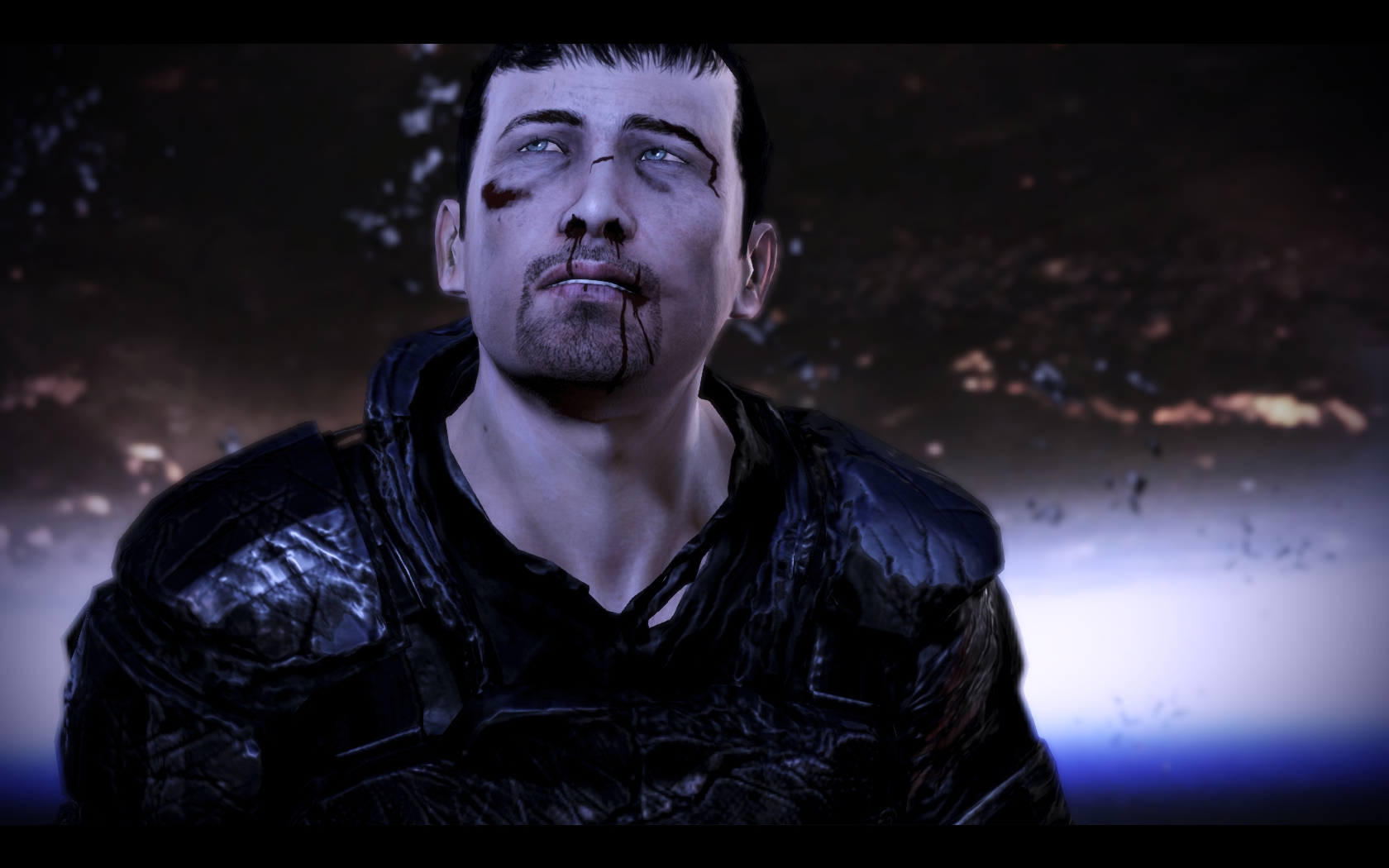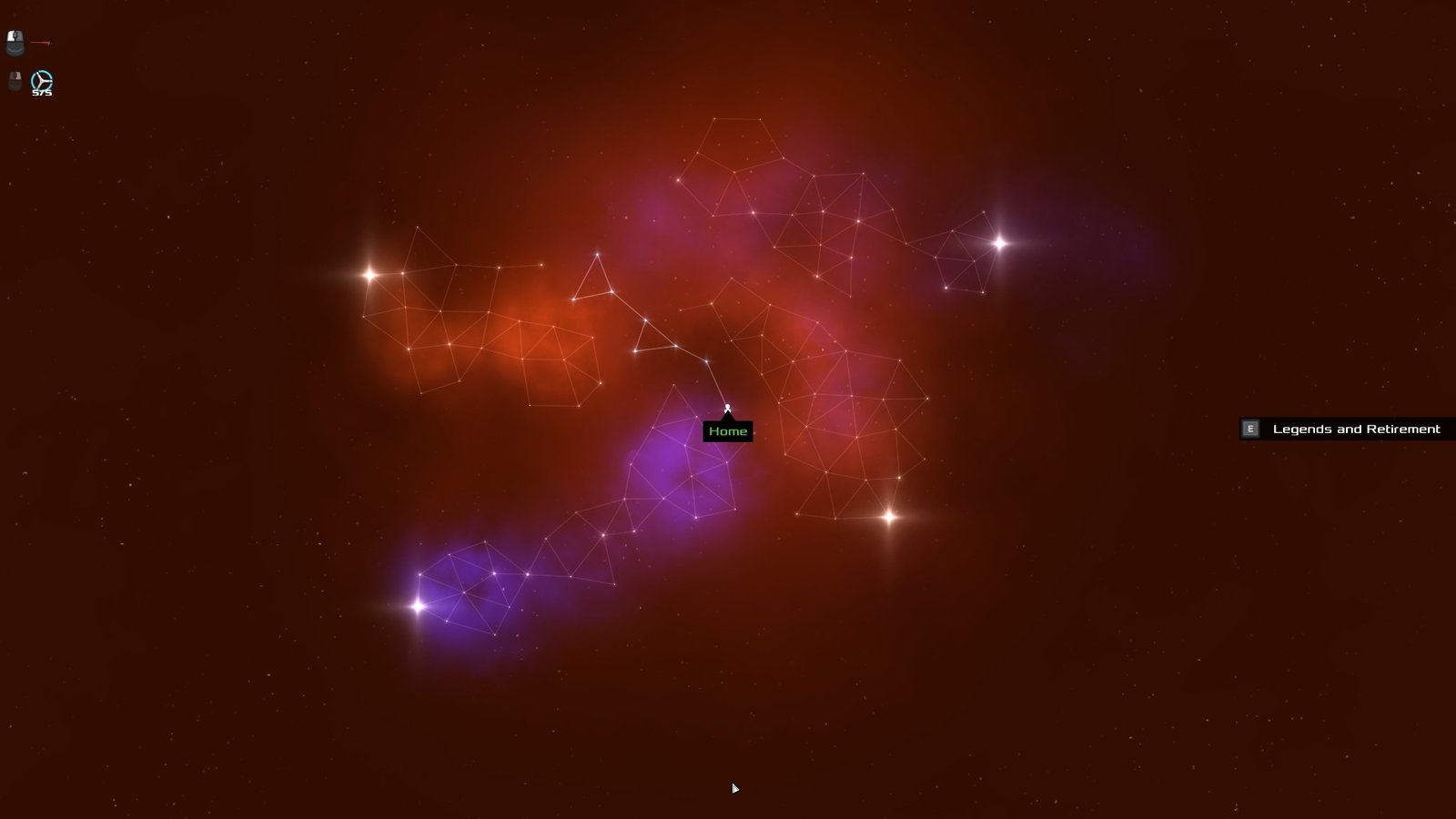Mass Effect 2 has a sub-plot so heinous, so wrong, that it very nearly derails the entire game. It won’t seem that way to everybody, though.
Many spoilers herein.
Allow me to explain. I hold the Mass Effect games in very high regard and have found them to be some of the most compelling titles to be released in recent years. While the combat was overly simplistic in the first and the main storylines in both overlook some amazing opportunities, they manage to become much more than the sum of their parts, in no small part thanks to the fascinating supporting characters. Bioware’s hit on a particularly winning combination of writing, voice acting and visual dexterity with the Mass Effect games that is only rivalled by Half Life 2 and the Uncharted games – both of which are far more linear and focused and not really comparable in scope.

This is perhaps best illustrated by my own Commander Sheperd, a guy in his mid-thirties with close-cropped hair, a finely sculpted goatee and a wise, battle-wearied intelligence behind his uncanny valley-leaping eyes. Bioware’s single greatest innovation with the Mass Effect series is to make your player character persistent across all the games, meaning that I’ve been playing as this customised incarnation of the character for two lengthy games. All the decisions I’ve made remain and have consequences, and I see those in his face. Those bags under his eyes remind me of Ashley’s death, blowing herself to pieces in an attempt to halt Saren’s assault on the galaxy and the guilt I felt having dismissed her as an ignorant racist. The deep lines around his mouth remind me of the brief flirtation with Liara which fizzled out after Sheperd’s untimely encounter with the Collectors. The pursed, unhappy mouth triggers memories of the fates of the Normandy’s unfortunate crews – both of them. This guy was there. It wasn’t just that I played through the events, in a previous game: it was this character, this Sheperd. That continuity is powerful.
The continuity extends to the supporting cast in Mass Effect 2, some of whom are recurring from the first game while others enter the story for the first time. For me the most rewarding interaction in the game was with Tali, an alien who finds herself confined to a completely sealed environment suit at all times due to a weakened immunity system. She was a character in the first game and formed a strong friendship, one which is tested, strained and almost broken in Mass Effect 2 but which ultimately has the potential to be healed and blossom into something else. It’s a touching, realistic relationship that plays out over the course of two intricate games. Subtle, poignant writing and a triumph of voice acting from Liz Sroka, burdened with a character whose face is entirely hidden behind an opaque oxygen mask.
On the path to developing the relationship between Sheperd and Tali there were a few diversions – first Liara in the first game, of course (that’s blue aliens for you), and then the intriguing Miranda in the sequel. In both cases the character sub-plots made sense given the circumstances of the characters and the mission. Even better was when Miranda decided she’d had enough and returned to an exclusively professional relationship – Bioware managed to make it feel like natural interaction, rather than a ‘failed quest’ as can happen in lesser RPGs.
But then there’s Jack.

Jack is a young, tattooed, violent girl with enormous biotic power and a flimsy sense of morality. Having been essentially bred in a lab and abused her entire life, by scientists and supposed friends and lovers, she’s a broken, self-destructive ball of rage. Her permissive, overt sexuality and aggressive tendencies put her at odds with the rest of the crew and also serve to make her into a fascinating character, one which reads far deeper than the early Mass Effect 2 trailers suggested.
Her main sub-plot involves returning to the illegal laboratory where she and countless other children were experimented upon in order to boost their mental powers, even at the cost of their own sanity. In an emotional finale you can help her come to terms with her past and start to rebuild her life and her trust in others – or, of course, you can exacerbate her instability and turn her into an even more dangerous killing machine, depending how you’re playing the game.
My Shepherd is a nice guy, so I helped her out. It felt only right, given her vulnerable state. Joining the crew of the Normandy was the best thing that ever happened to her, providing a stable sense of family which she could use as a firm foundation from which to address her mental health issues. As a mid-30s Sheperd I easily fell into a father figure role, providing her with the strong parental guidance that she’d never had as a child.

Perhaps inevitably, she became a little infatuated and mistook my friendship and guidance as being sexual or romantic. At this point I was impressed with the skill and nuance demonstrated by the Bioware writers, who were dealing with large, serious topics in the context of their grand space opera. Given Mordin’s remarkable storyline, which explored the ethics of genocide in disturbing detail, I was convinced that the Jack sub-plot would be equally satisfying.
Then, to my surprise and disappointment, I realise that my only response to Jack’s advances were to return them in kind or to reject her cruelly. The latter was unnecessary, as I still saw her as a friend in need. The former, meanwhile, was massively inappropriate, given her hugely vulnerable state and my position as a powerful authority figure, one which should know better. The idea of the military leader having a romantic or sexual relationship with members of his crew is treading on dubious ground to begin with, but at least with the other characters it makes contextual sense. With Jack, it was simply abhorrent.

I assume that Bioware co-founder Ray Muzyka doesn’t make a habit of pressuring his employees into romantic entanglements, and would strongly disapprove of any senior manager that attempted such a thing. Similarly, the relationship between a young person with mental health issues and their counsellor is sacrosanct. If a counsellor was found to be encouraging a sexual relationship with a patient they would be rightly investigated.
As it’s a Bioware game, the player is given a choice. Curiously, the romantic/sexual option is positioned at the top of the dialogue interface, the area that is reserved specifically for ‘morally good’ actions, while the cruel rejection is at the bottom in the ‘morally dubious’ area. The message Bioware is sending out here is worrying and rather distasteful.
What would have been far more sophisticated would have been to position the romantic/sexual option to the ‘morally dubious’ choice, while offering a ‘parent/friend’ option as the ‘morally good’ action. This would have offered players a genuinely intriguing and valid choice and it’s a shame that Bioware opted for the rather more gratuitous and exploitative options.

Finally, of course, I need to factor myself into the equation. As I mentioned at the start, not everybody will have this reaction. I’m 29 and many of my friends have children. I have a god-daughter. Over the last few years I’ve seen myself move away from an early-20s, studenty persona towards a more responsible, adult role. In Jack I see a vulnerable teenager, which is why the writing of her story arc disturbs me to this extent. Potentially the situation could be very different if I were 16 and playing the game – she would be my contemporary and I wouldn’t feel like a father figure. Theoretically it could be a very different gameplay experience and one with far fewer dodgy implications.
On the other hand, Commander Sheperd isn’t a 16 year old. Regardless of the age of the player, Sheperd is very much an adult, a supposedly responsible leader of a vital mission. As such, he should know better.
To look on the bright side, the fact that I care about these characters enough to write this article shows that Bioware and gaming are absolutely heading in the right direction, even if there are a few bumps along the road.





0 Comments
Mass Effect 3′s Extended Cut an unexpected success « Potential Gamer · July 3, 2012 at 10:37 pm
[…] written enthusiastically about both Mass Effect and Mass Effect 2. Despite flaws, they were both games that fired my imagination and lingered in memory long after […]